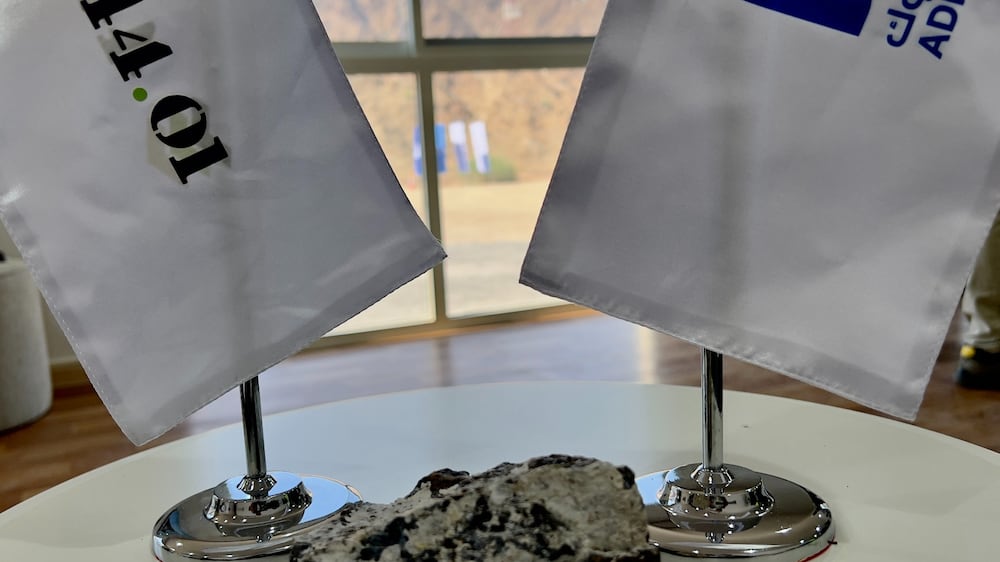Adnoc is undertaking a pilot project with a British-Omani sustainability company 44.01 to permanently convert carbon dioxide from the air into a mineral within rock formations in Fujairah.
The project is being carried out in partnership with the Fujairah Natural Resources Corporation and Masdar.
It uses 44.01’s carbon capture and mineralisation technology to eliminate carbon dioxide from the atmosphere.
Carbon capture, utilisation, and storage (CCUS) involves the trapping of carbon dioxide emissions from industrial activities such as steel and cement production, as well as from fossil fuel combustion in power generation.
The global CCUS market, which was valued at $1.9 billion in 2020, is projected to reach $7 billion by 2030, growing nearly 13.8 per cent per annum, according to Allied Market Research.
Earlier this year, Adnoc said it would invest $15 billion in a range of decarbonisation projects by 2030, including clean power, carbon capture and storage, further electrification of operations, energy efficiency and new measures to build on its policy of zero-routine gas flaring.
Last December, the state energy company set up a new low-carbon solutions and international growth unit that will focus on renewable energy, clean hydrogen and carbon capture and storage, as well as an international expansion into gas, liquefied natural gas and chemicals.
The UAE, the Arab world's second-largest economy, plans to invest up to Dh200 billion ($54 billion) by the end of the decade to ensure energy demand is met while sustaining economic growth.
Last week, Abu Dhabi inaugurated the two-gigawatt Al Dhafra solar power plant, one of the world's largest solar projects.
It will power 200,000 homes and is expected to reduce Abu Dhabi's carbon dioxide emissions by more than 2.4 million tonnes a year, equivalent to removing about 470,000 cars from the road.





